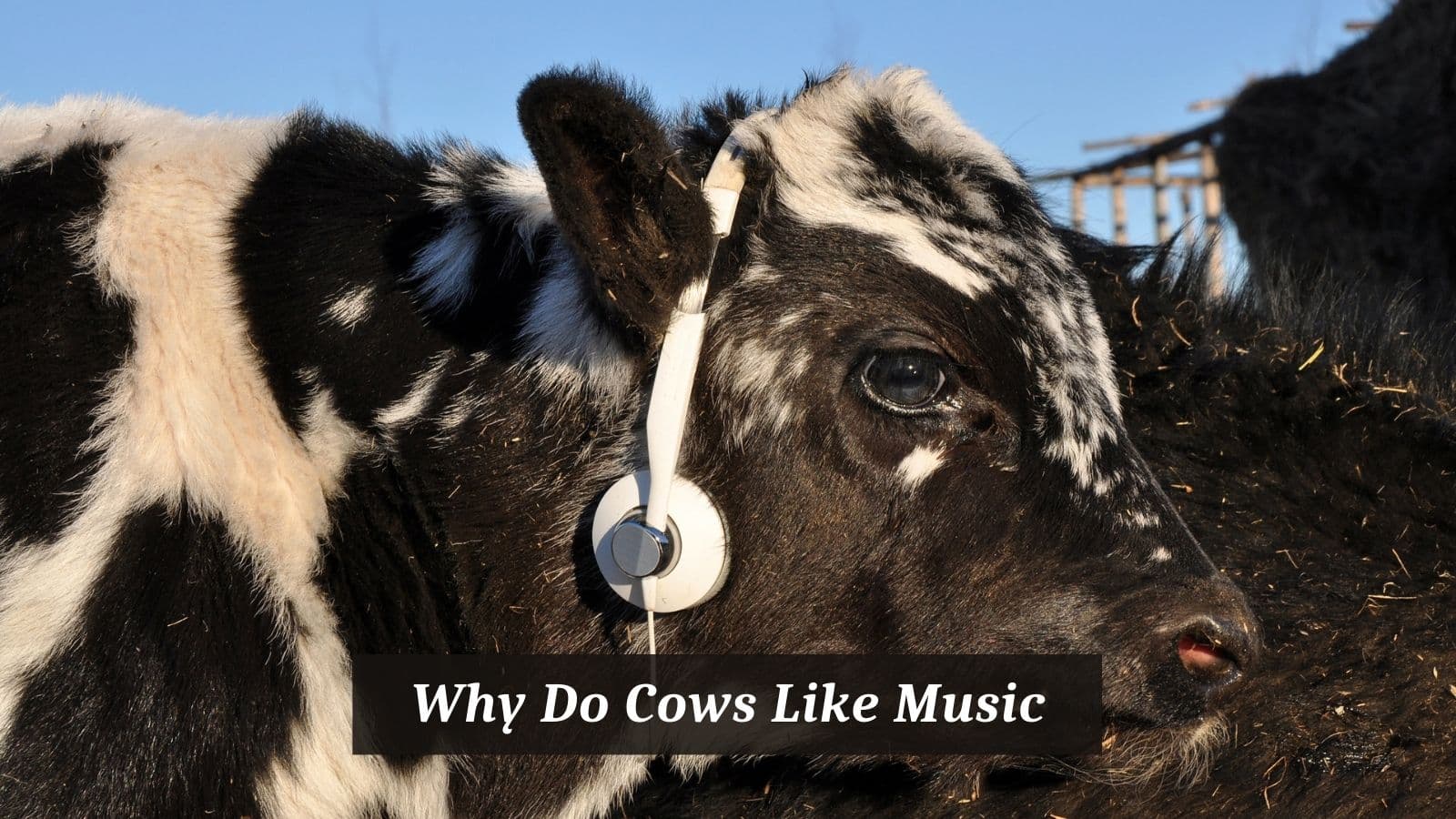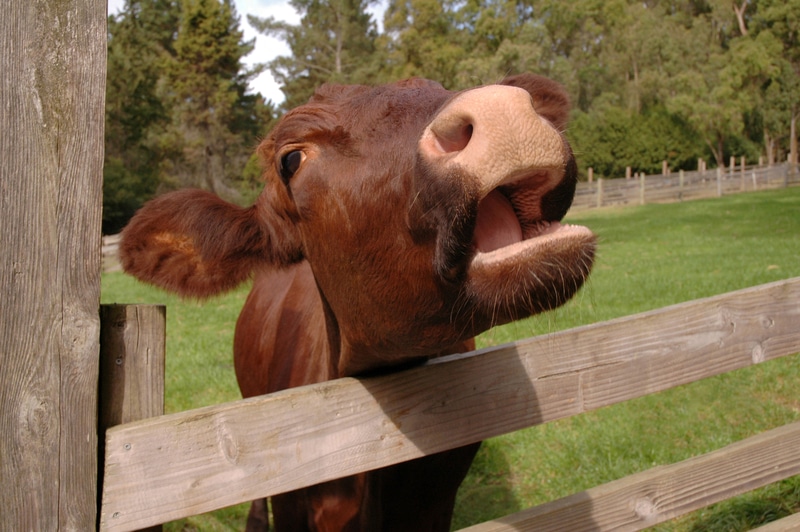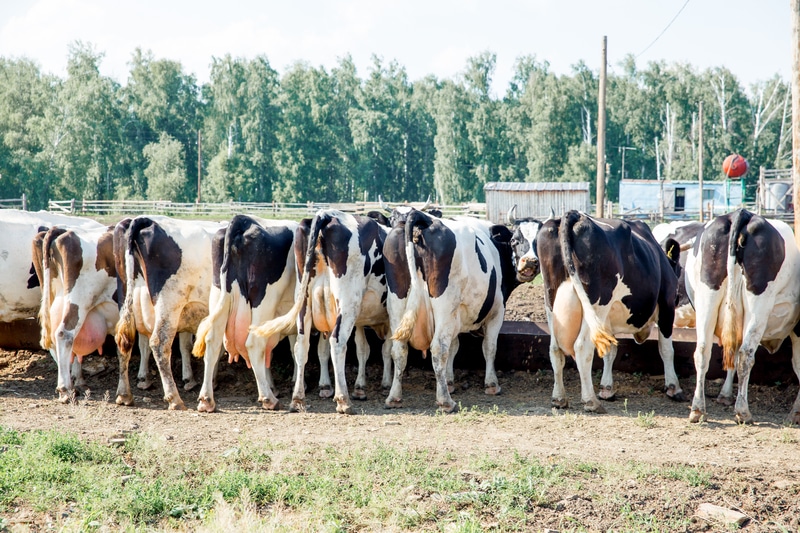
While we cannot be entirely sure what cows think about when they listen to music, we can safely assume that they like it.
But cows also have music preferences—anything under 100 beats per minute (BPM) seems to soothe them. In contrast, loud and fast music creates stress. One thing is for sure, just like humans, cows benefit from soothing sounds, and it helps their mental well-being.
Cows and Music
Let’s get one thing straight: cows aren’t stupid and have complex familial bonds within the herd. Cows are also curious about what’s happening around them; when music plays, they want to know what’s happening and enjoy the music.
Cows even form friendships within the herd—sometimes lifelong friendships. But why do cows like music? Let’s unpack this question below.
Why Do Cows Like Music
Do Cows Find Music Enjoyable?
Cows are drawn to music and absorbed in it—some will start ‘singing’ along while others will fall asleep listening to music. Music is a way for cows to handle stressful situations because it calms them.
This could be because cows communicate with each other through their sounds and find comfort in knowing they’re part of the herd, but also close to their friends. Although cows may not understand music’s intricacies like humans, they can recognize music patterns and melodies.
Why Do Cows Enjoy Music?
Cows have a keen sense of hearing and can distinguish unique sounds. Cows are also curious animals and find music intriguing. You can see how the cows become intrigued by the music in this video.
Initially, only a few cows look at the players. However, as the music continues, the others get up and gather to listen to the music with the rest. All the cows’ curiosity is undoubtedly rewarded!
Research has shown that music releases chemicals such as serotonin and endorphins in the brain of most mammals. Think to yourself, when you hear a song you like, you feel good, sometimes you even jump up and dance!
In 2018, professional classical pianist Yurio Morata’s cat Choco became world famous on Twitter. Why? Because Choco dramatically reacted while listening to the fourth movement of Mahler’s Symphony No. 9. Choco seemed to be especially intrigued by the string section.
But, back to cows now. When our brains release those feel-good chemicals, we feel relaxed, happy, and non-threatened. Because cows have relatively large brains and big bodies, it would be safe to say that they will also have a lot of feel-good chemicals flowing through them, helping them to relax.
Research has also shown that cows who listen to music during milking time are more relaxed because the music probably blocks out other stressful noises.
One theory suggests that music reminds cows of home—the music reminds them of the environments they were raised in.
Music stimulates the auditory nerve center, promotes structural changes there, improves their physical development, and affects their physical development, according to one study. Cows may not know all these technical details, but they like and react to music like humans.
What Types of Music Appeal to Cows?
So, we gathered that cows like music, but maybe they have preferences like humans? It seems that cows enjoy classical music, melodious singing we’ll look at that a bit later), and music under 100 BPM.
Humans use classical music therapy to help depressed patients improve their moods. Patients react positively to music through emotional responses caused by music when dopamine is released in the brain.
The emotional response is known as frisson—ever listened to music and felt the hair on the back of your neck suddenly stand up? You’ve experienced frisson firsthand! We know that cows are intelligent and sentient animals.
Like humans, they can experience complex emotions such as love, joy, loneliness, separation, and even grief. Considering these complex emotions, it isn’t surprising that cows can also benefit from and enjoy music.
But cows are also particular in their music tastes; research has shown they don’t like the following songs: Supergrass’ Pumping on Your Stereo, Space Cowboy by Jamiroquai, and The Beatles’ Back in the U.S.S.R., to name a few.
Maybe the music is too noisy, or the BMP is too high and thus too lively for the cows. Cows seem to love Beethoven’s Symphony No. 6, the Pastoral Symphony. However, research doesn’t mention how the cows would react to the fourth movement, which depicts the storm…
Do Cows Enjoy Singing?
We mentioned cows like melodious singing. Songs that appeal to them the most include What a difference a day makes by Aretha Franklin and Bridge over troubled water by Simon and Garfunkel.
But in Sweden, there’s a different type of singing altogether. Swedish kulning is a singing tradition that dates back to the middle ages. It is used to call cows home when they are out in the pastures grazing during the long days in Sweden.
The farmers would send their bovine livestock out to a small fäbod—a remote, temporary settlement in the mountains where the cows and goats could graze freely.
But the cows would generally wander off quite far, and to call them home, the women would sing them kulning songs to call them home.
While kulning isn’t technically playing music to cows, it is still an exciting concept because cows feel loyalty to their caregiver. There’s a leader cow who will hear the call of their human as she’ll encourage the other cows to follow her back to the source of the music or kulning call.
Kulning shows us that cows react to music, which helps to form social bonds in the herd and with the caregiver. Kulning was also used in Frozen 2 when Elsa sings Into the Unknown.
Conclusion
We know that cows are intelligent and sentient animals. Just like us humans, they also find comfort and relaxation in music. It appears that slower music provides the most benefit to cows and helps them to calm down.
Maybe music is just one of those evolutionary traits that cows, like humans, inherited from their and our ancient ancestors to allow us to bond with one another.


